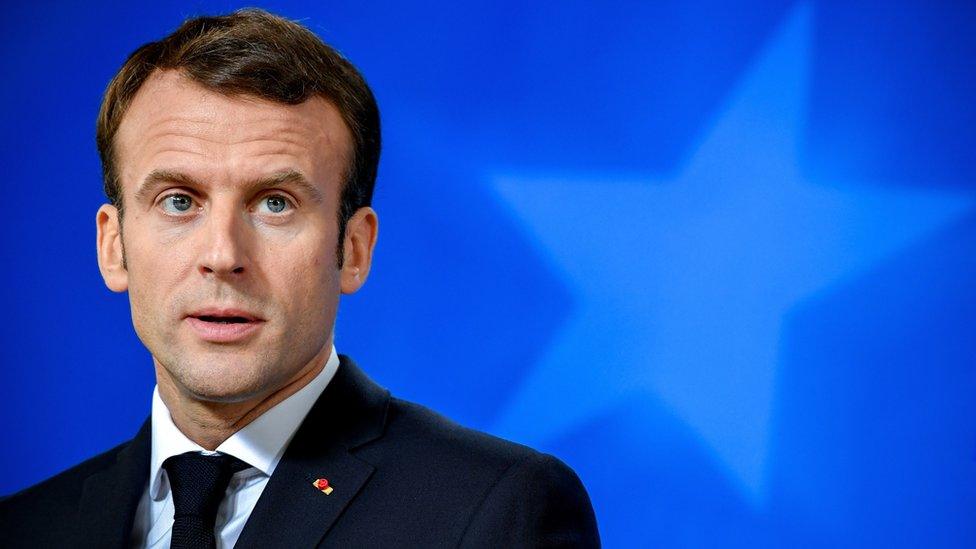So long and thanks for all the fish? Dutch fear Brexit threat
- Published
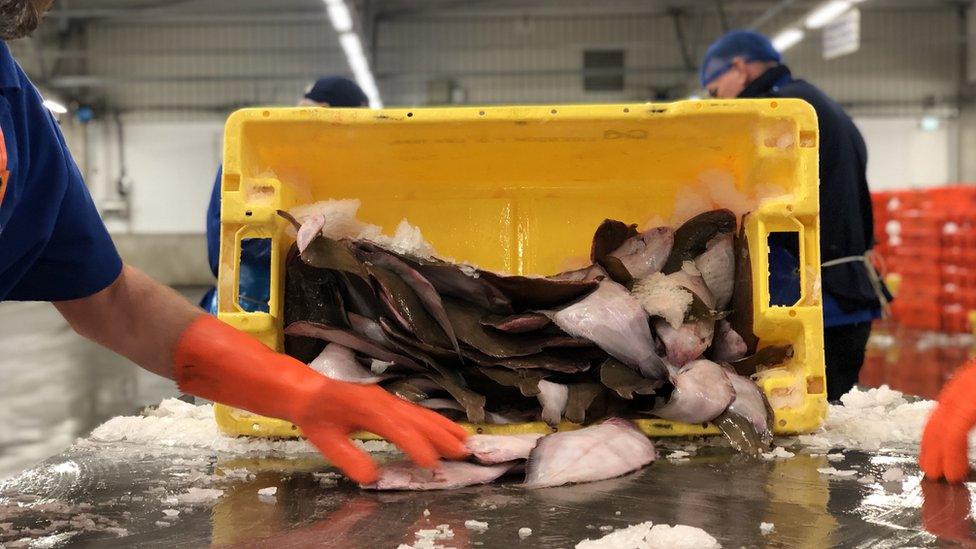
Urk is one of the main centres of the Dutch fishing industry
Fresh plaice encased in crushed ice pour out of crates on to the stainless steel tables.
"Very worried of course about Brexit," says Barend Hakvoort, whose job it is to ensure the Netherlands' largest fish auction house maintains its stocks.
"Many Urk people are fishing under a UK flag, they own a lot of quota. If the UK says they must land the fish in the UK we lose a lot of clients. We have a long history; with Brexit they can just throw it away and say these are the new rules."
Skipper Andries wears a tartan beret and gold-hoop earring. "If we lost the UK waters we'd lose 50% from Dutch vessels. I'm nervous, I don't know what the future brings."
His 17-year-old son Yelle attends "fishing school".
"It's very exciting, fishing," he grins.
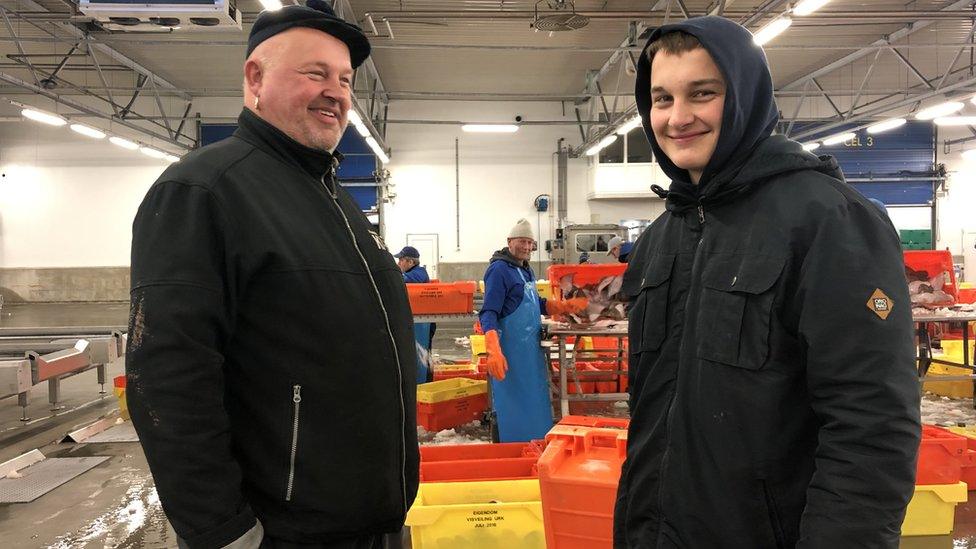
Andries's son Yelle is training to become a fisherman
But, looking ahead five years he is worried: "I don't think we will be able to fish in English waters."
An emotional issue over herring
Like the UK, the Dutch fishing industry is concentrated in small coastal communities.
Any losses could be catastrophic in towns like Urk and on the island of Texel, where most families' livelihoods depend upon fishing.
Yet the industry accounts for less than 1% of Dutch GDP. Pim Visser, director of Vis Ned, is anxious that fisheries will not become a political bargaining chip in future trade talks.
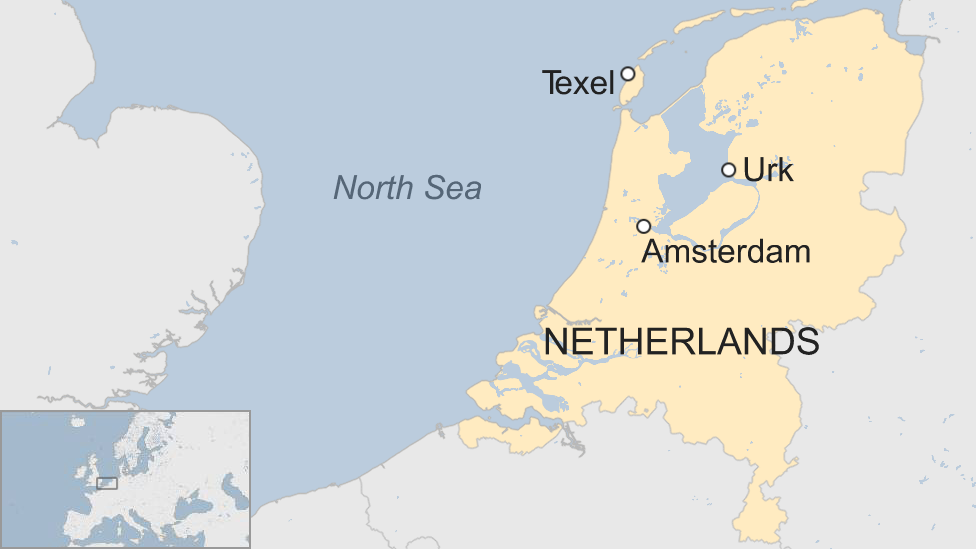
"Fishing is an issue with a lot of emotion."
"As the [Withdrawal Agreement] text is now, we might end up in a situation where Mrs May goes back to Brussels and says 'I can get the withdrawal through but I need these 13 Scottish Tories; so please give me the fisheries - otherwise I can't get it through and we're all in deep trouble'. That would be disastrous."
We're hovering outside the Dutch agriculture ministry, where Mr Visser and his colleague Gerard van Balsfoort, president of the pelagic freezer trawler association, are lobbying ministers to ensure Dutch fishermen can keep their current quotas.
"Dutch herring is iconic. We have tulips, windmills and herring," Mr Van Balsfoort insists. "The thought of the Dutch not being allowed to catch our herring, for us it is just unimaginable."
Will Britons develop a taste for herring?
And here's the twist in this tale.
Herring is mostly caught in UK fishing waters, but the British are less partial to the distinctive taste: 93% of its herring is exported (mostly to Norway and the Netherlands).
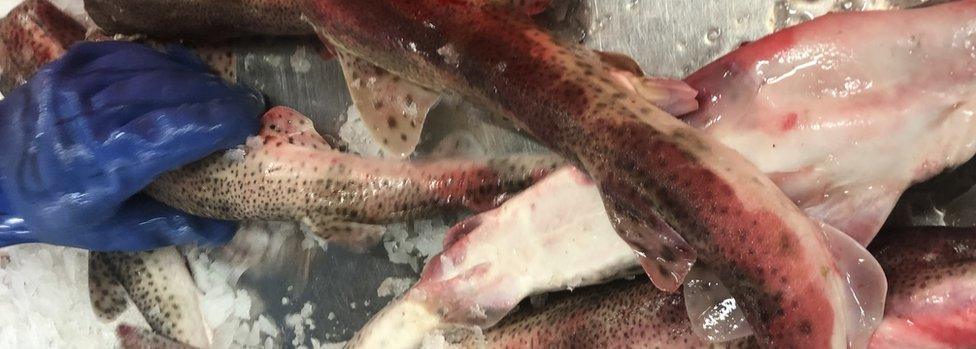
Urk has 40 fish-processing factories
For Brits it is the fish and chips that hold that iconic status:
Cod constitutes only 5% of UK catch
Haddock makes up 7% of UK catch
83% (110,000 tonnes) of cod consumed in UK is imported
58% (47,000 tonnes) of haddock eaten in UK is imported
In the spirit of reciprocity, if the British government were to "take back control of UK waters" and redistribute the quotas, the EU could respond by slapping considerably higher taxes and conducting more checks on UK exports.
According to Rem Korteweg, a researcher at the Dutch institute of international relations, the only way for Britain to reclaim the quotas without feeling the blowback from EU retaliatory measures "is for the British to start liking herring and mackerel, and they don't".
Such is the interdependency of the UK-EU fishing industry that historic ties are hard to unravel without both sides taking an economic hit.
What the deal says
While Sunday's legal Withdrawal Agreement extended existing fishing arrangements until a deal is reached, the joint political declaration put a date on it:
The parties will use their best endeavours to conclude and ratify their new fisheries agreement by 1 July 2020 in order for it to be in place in time for it to be used for determining fishing opportunities for the first year after the transition period.
But alongside the documents signed by the UK and EU, a separate and far tougher statement by the 27 other countries in the bloc called for greater urgency and the need to "protect fishing enterprises and coastal communities":
A fisheries agreement is a matter of priority, and should build on, inter alia, existing reciprocal access and quota shares. Such an agreement should be negotiated well before the end of the transition period.
France's President Emmanuel Macron even warned that without a quick compromise on fishing, talks on a wider trade deal would falter.
Urk: Population 20,000
Forty fish processing factories flourish in this quintessential fishing town.
Lemon sole, netted in British waters, are filleted here, processed and sold back to British supermarkets such as Waitrose, Marks and Spencer and Sainsbury's.
Some in the UK argue that if the Dutch were forced out of British waters, UK fishermen could catch the British fish instead.
But quality assurance manager Cornelius disagrees: "The British producers cannot produce like us. We are flatfish producers, we own all the machines."
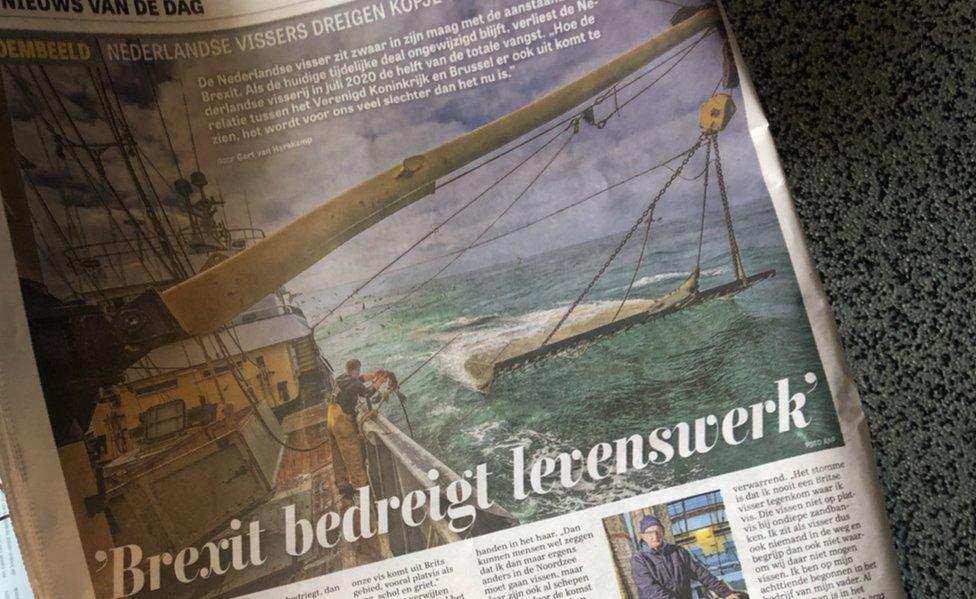
A Dutch newspaper headline reads: "Brexit threatens life's work"
A man wearing a hairnet pushes a Dutch newspaper into my hand: "It says the prime minister must roll up his sleeves and fight for our fishermen."
It is a reminder that in the Netherlands, UK, France and Spain, fisheries hold more political clout than their overall contribution to the economy might suggest.
Europe's cherished fishing communities are part of the national psyche and heritage, and are particularly vulnerable to any changes in the current climate.
For a Scot reporting in the Netherlands, the feelings on both sides of the North Sea are palpable.
- Published25 November 2018
